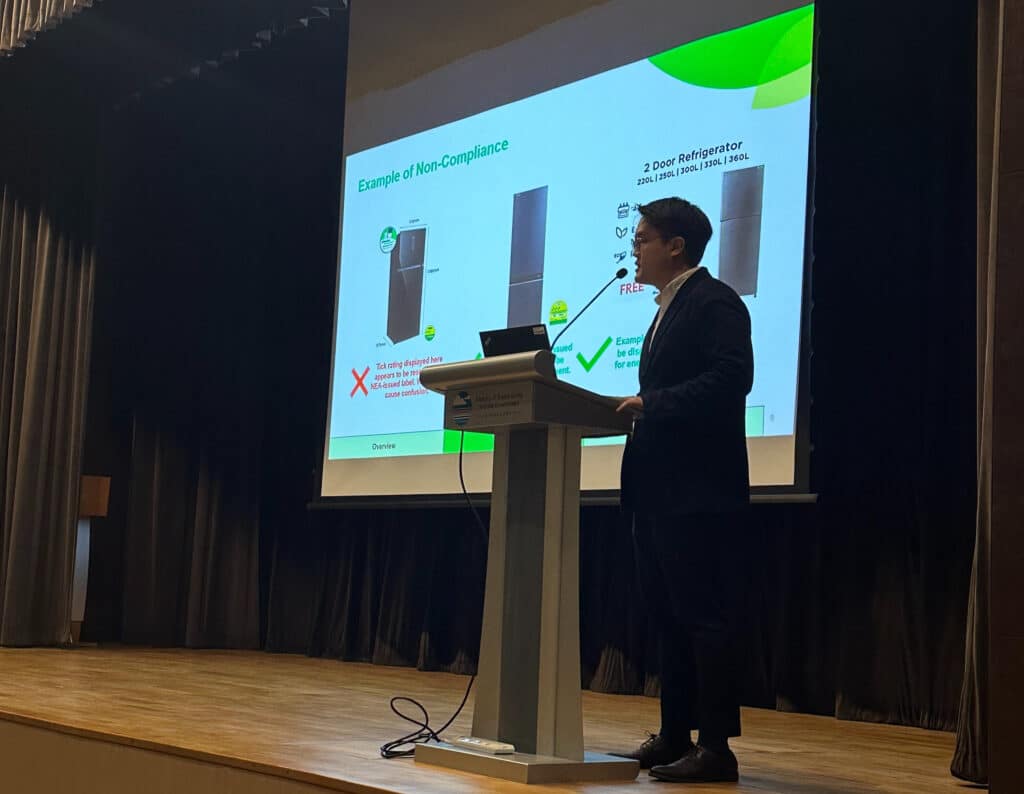Singapore is taking another significant step in its efforts to combat rising energy consumption and environmental challenges by revising its Minimum Energy Performance Standards (MEPS) for split-type air conditioners (ACs).
Starting 1 April, 2025, the new MEPS will raise the energy efficiency requirements for both single-split and multi-split ACs. This revision is a key part of Singapore’s ongoing commitment to the ASEAN Regional Policy Roadmap for Energy-Efficient Room Air Conditioners. By increasing MEPS, Singapore aims to reduce energy consumption, lower greenhouse gas emissions, and accelerate the adoption of more efficient, sustainable cooling technologies in the region.
Revised MEPS: Unlocking Greater Energy Savings and Environmental Benefits for Singapore
The new MEPS will require higher efficiency ratings for both single-split and multi-split air conditioners under the Singapore Energy Labelling Scheme, thus raising the bar for energy performance.
For single-split ACs, the MEPS will be raised to the 4-tick level, with the performance criteria increasing from 4.04 WCOP (5.1 CSPF) to 4.86 WCOP (6.1 CSPF). For multi-split ACs, the MEPS will be raised to the 5-tick level, from 4.04 WCOP (5.1 CSPF) to 5.5 WCOP (6.86 CSPF). This revision underscores Singapore’s ongoing commitment to sustainable cooling technologies and its leadership in the ASEAN region.
The updated MEPS will bring significant benefits for both consumers and the environment by encouraging retailers to offer more energy-efficient air conditioners, leading to lower electricity bills for households and businesses. On a larger scale, these revisions will help reduce energy demand and emissions from cooling systems, supporting ASEAN’s climate goals and the region’s transition to cleaner technologies. Singapore’s proactive approach sets a benchmark for other ASEAN countries, motivating them to raise their own energy efficiency standards.
By 2040, energy-efficient air conditioners could save Singapore 1.3 TWh annually—equivalent to avoiding the need for three 500 MW power plants. The environmental impact would be significant, reducing CO₂ emissions by 0.7 million tonnes, which is like taking 400,000 cars off the road. This shift is also expected to save Singapore USD 71 million in electricity bills annually by 2040.
The ASEAN Cool Initiative: Promoting Regional Energy Efficiency
In 2023, the ASEAN Cool Initiative was launched with the goal of accelerating the implementation of energy-efficient room air conditioners across the region. The initiative seeks to provide technical assistance and capacity building in the areas of MEPS and labelling, supported by key partners, including the Clean Cooling Collaborative (CCC), the ASEAN Centre for Energy (ACE), UNEP-United for Efficiency (U4E), Lawrence Berkeley National Laboratory (LBNL), Deutsche Gesellschaft für Internationale Zusammenarbeit (GIZ), and the International Institute for Energy Conservation (IIEC).
Under the ASEAN Cool Initiative, U4E supported NEA on the MEPS revision by providing technical support in refining the energy efficiency rating system, identifying high-efficiency RAC models that exceed the new 6.09 CSPF standard. The updated classification, ranging from 1 to 5 ticks, helps consumers make better-informed choices.
In November 2023, U4E hosted a Study Tour in Singapore for 40 participants from ASEAN Member States, where the NEA shared its energy efficiency policies. A retailer survey showed that higher efficiency does not always mean higher costs, dispelling misconceptions about energy-efficient appliances. The event motivated ASEAN countries to accelerate their progress toward the Regional Policy Roadmap Phase II Target for Energy-Efficient RACs.
For more information on the ASEAN Cool Initiative, contact Zafe Fazilah Abu Bakar at zafe.fazilah@un.org and Saikiran Kasamsetty at saikiran.kasamsetty@un.org .
